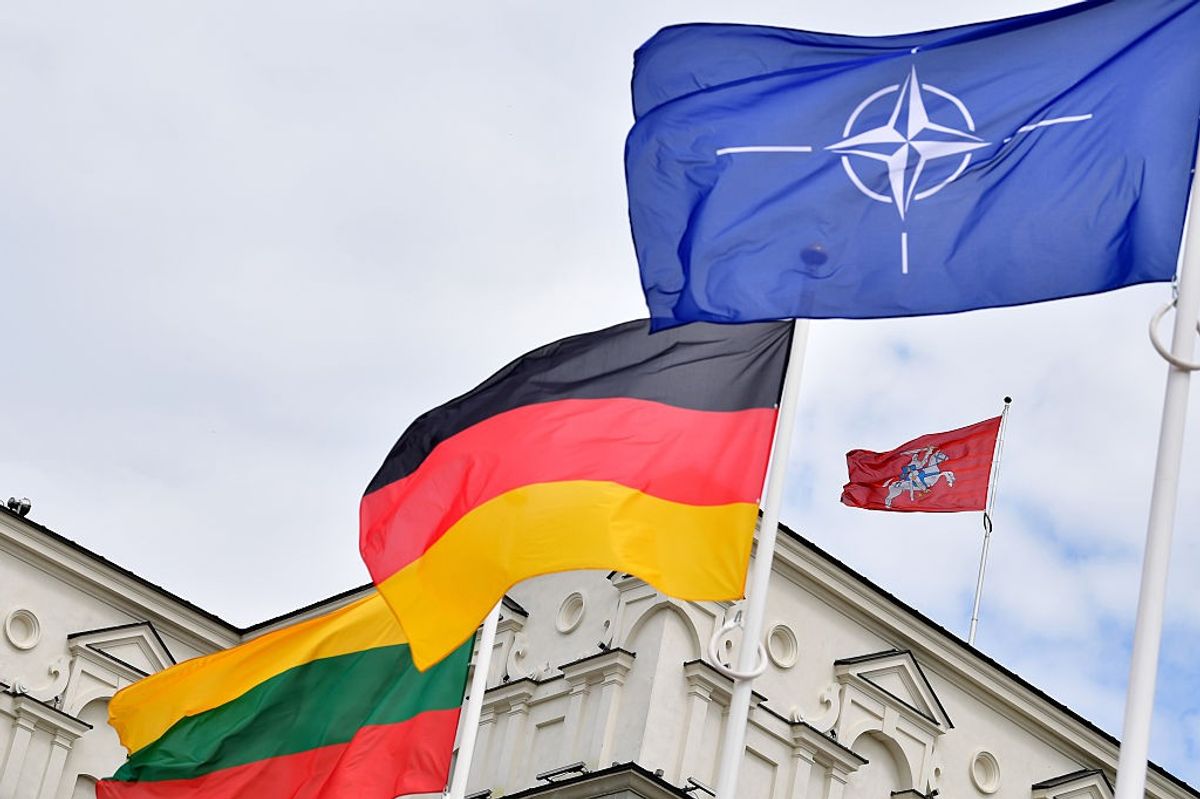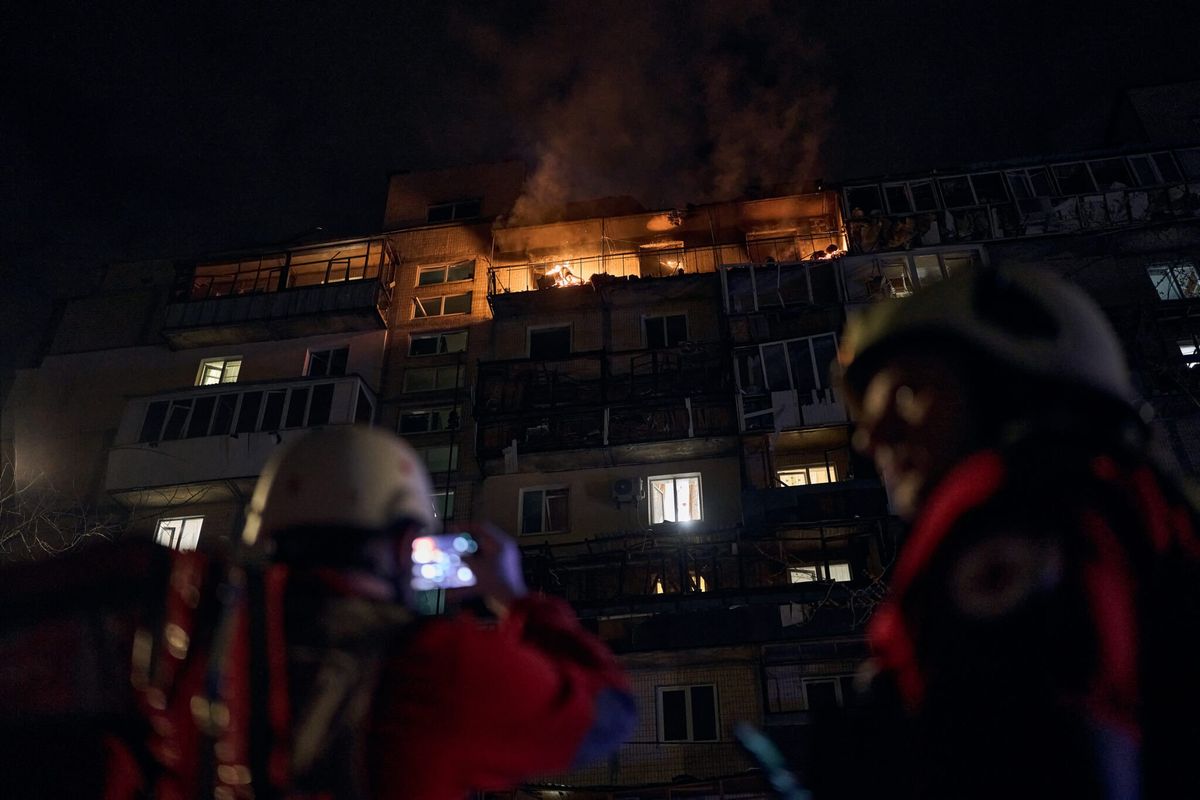The election of Donald Trump as the next U.S. President has created uncertainty among European leaders as they consider the future of defense and security cooperation with the United States. Trump’s campaign rhetoric calling NATO – the transatlantic defense alliance – “obsolete” and demanding member nations contribute more to their defense, has prompted some Europeans to reconsider their responsibilities.
“Europe must adapt itself, to better provide for itself, and to invest more in European security and defense,” said German Defense Minister Ursula van der Leyen shortly after the U.S. election result was announced.
Manfred Weber, the floor leader for the center-right European People’s Party in the parliament of the European Union (EU), commented, “We have to be more self-confident and stronger and take on more responsibility.”
The leader of the European Parliament’s Socialist group, Gianni Pittella, told POLITICO, “Europe has to step up now as a civil power in the world.” Trump’s foreign and security policies offer “a huge room for maneuver for strong EU initiatives,” like planned defense cooperation, he said.
Europe has for some time recognized the need to provide more for itself in terms of defense and security. Indeed, NATO’s Framework Nations Concept, approved in 2014 and spearheaded by Germany, aims to strengthen NATO’s European pillar.
Trump’s presidency could expedite this process. His campaign statements about potential disengagement from NATO, his more favorable views of Russia, and his sheer unpredictability are contributing factors.
In July, after winning the Republican nomination for president, Trump remarked that he would only come to the aid of NATO allies impacted by a Russian attack after determining if those nations “fulfilled their obligations to us,” referring to NATO’s two percent clause in which allies agreed to contribute two percent of GDP to defense spending. The U.S. is one of just a few NATO members who actually meets this provision.
Former NATO Supreme Allied Commander Admiral James Stavridis tells The Cipher Brief that the U.S. has always pressured its allies in NATO to met their obligations, but the difference now is “the tone of President-elect Trump’s conversations about NATO would lead one to believe that if those allies did not meet that level, he was prepared to walk away from the table.”
There is also the question of whether President-elect Trump will favor a policy of isolationism over alliances. A Latvian member of the European Parliament, Sandra Kalniete, posted on Facebook, “His [Trump’s] election shows the U.S. turning towards isolationism, which will weaken the U.S. involvement in NATO.”
But the fact is, Trump has not yet made clear his foreign and defense policy objectives, and once he takes his seat in the White House, “isolationism” may not top his agenda. But the ambiguity is worrisome for NATO members.
French President Francois Hollande warned Trump’s victory “opens a period of uncertainty.”
German journalist Dagmar Pepping told The Cipher Brief, “Many politicians here [in Germany] see Trump as a ‘loose cannon’ who could destabilize NATO.”
There is a feeling in Europe that future U.S.-Europe relations under Trump will not be about partnership but rather about “unpredictability,” Almut Möller, Head of the European Council of Foreign Relations (ECFR) Berlin office, explains.
Möller, a Cipher Brief expert, notes, “It is a new chapter in which the decades-old foundation of the transatlantic relationship – shared values – may be called into question.”
Trump’s win poses the risk of a United States that draws closer to Russia – and Russian values – thus undermining NATO.
In Trump’s acceptance speech early Wednesday morning, he made a point of saying America “will deal fairly with everyone,” Russia included. Russian President Vladimir Putin was one of the first to offer his congratulations to Trump, signaling Moscow wishes to restore “fully fledged relations” with Washington from the “current state of degradation.”
Russia-NATO tensions have been particularly tense ever since Russia annexed Crimea and stirred unrest in eastern Ukraine, prompting the U.S. and the EU to impose sanctions.
“’Wouldn’t it be great to be friends with Russia?’ has been the meme, with nil said about changing Putin’s behavior,” former CIA and NSA Director General Michael Hayden told The Cipher Brief.
Yet General Jack Keane, former acting Chief of Staff of the U.S. Army and a Cipher Brief Network member, says, “I’m convinced the feelings he may have had about Russia during the campaign will be somewhat mitigated by the understanding of the depth of Russia’s aggression and intent.” Russian jets buzzing U.S. ships and planes and the Russian hack of the Democratic National Committee’s computer networks are recent examples of Russia’s continuing aggressive stance.
Moreover, Stavridis notes he does not think the U.S. would ever fall into the category of a nation not adhering to the values that NATO was founded on, namely human rights and democracy.
Future transatlantic relations, especially defense and security ties, will be on “choppy seas,” to quote Stavridis. Yet that does not mean an erosion of the NATO alliance under Trump’s presidency. It does mean, however, Europeans are taking much more seriously the need to provide for their own defense and security.
Kaitlin Lavinder is a reporter at The Cipher Brief. Follow her on Twitter @KaitLavinder.









